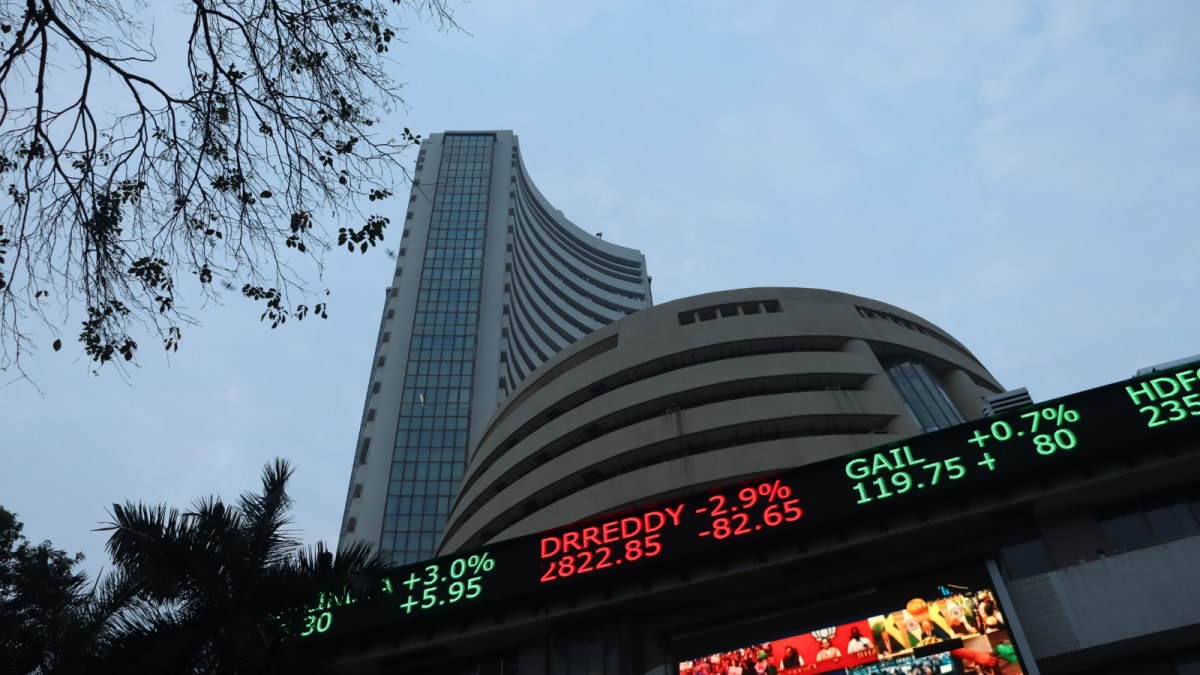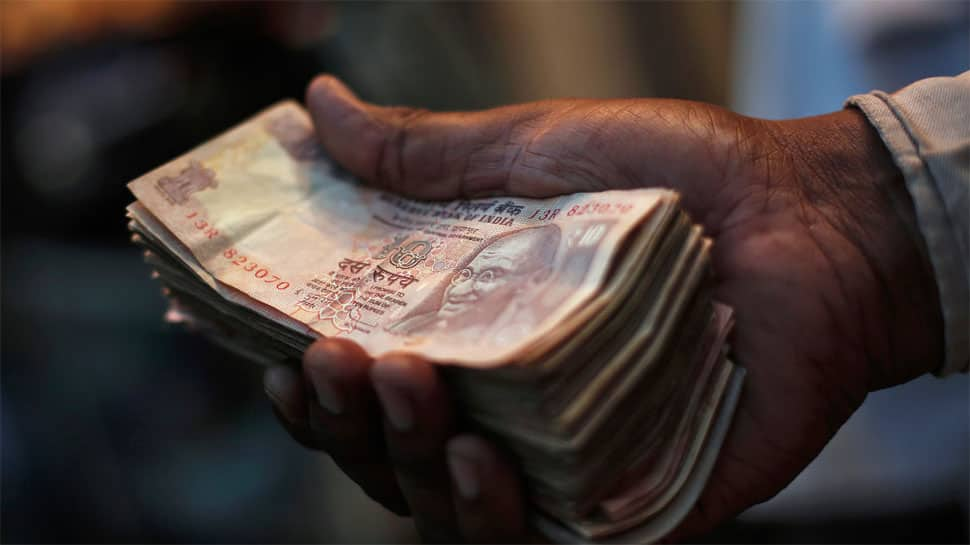Business
FTSE 100 ends higher as hopes rise of US interest rate cut

The FTSE 100 forged ahead on Thursday as the bond market calmed further and investors looked ahead to Friday’s US non-farm payrolls figures as hopes build for a rate cut.
The FTSE 100 index closed up 38.88 points, or 0.4%, at 9,216.87. The FTSE 250 ended 161.61 points higher, or 0.8%, at 21,474.68 but the AIM All-Share finished down 6.47 points, or 0.8%, at 762.00.
In Europe, the CAC 40 in Paris ended down 0.2%, while the DAX 40 in Frankfurt closed 0.7% higher.
“The FTSE 100 pushed ahead as bond markets calmed down and the focus shifted to US jobs data,” said AJ Bell investment director Russ Mould.
The yield on the US 10-year Treasury was quoted at 4.20%, narrowed from 4.22% on Wednesday. The yield on the US 30-year Treasury was quoted at 4.90%, trimmed from 4.91%.
In the UK, the yield on 10-year gilts eased to 4.73% compared to 4.76% at the same time on Wednesday.
Ahead of Friday’s non-farm payrolls report, figures showed US private sector job growth slowed sharply in August.
According to payroll firm ADP, businesses added just 54,000 jobs amid signs of labour market cooling and persistent economic uncertainty.
The figure came in well below July’s upwardly revised total of 106,000 and marked the smallest gain in five months. It also missed FXStreet-cited expectations of 65,000.
Citi analyst Veronica Clark expects Friday’s non-farm payrolls to show continued gradual weakening in the jobs market with 45,000 payrolls added and the unemployment rate rising to 4.3% with upside risk.
“This should be soft enough to all but ensure a rate cut from the Fed in September,” she said.
Elsewhere, the Institute for Supply Management;s US services PMI rose to 52.0 in August from 50.1 in July, signalling the third straight month of expansion.
The business activity index increased to 55.0 from 52.6, while the new orders index surged to 56.0 from 50.3. However, the employment index remained in contraction at 46.5, the third month below the break-even 50-point mark.
Analysts at TD Economics said the surge in new orders was “encouraging”, although the report “wasn’t without blemishes, with an employment index that remained in contractionary territory for the third month in a row.
But with the Fed now putting more emphasis on softening labour market conditions, the subdued performance of the employment subcomponent in the report lines up with a host of other data favouring a rate cut at next month’s FOMC meeting, TD analysts added.
In New York, at the time of the London equities market close, the Dow Jones Industrial Average was up 0.3%, as was the Nasdaq Composite, while the S&P 500 rose 0.4%.
The pound eased to 1.3432 dollars late on Thursday afternoon in London, compared to 1.3448 at the equities close on Wednesday.
In the UK, figures showed the UK’s construction sector remained in contraction in August, with activity falling for the eighth consecutive month, led by steep declines in the housing and civil engineering sectors.
The headline S&P Global UK construction purchasing managers’ index rose to 45.5 points in August from 44.3 in July – which had marked a more than five-year low – but remained well below the neutral 50.0-point mark that separates growth from contraction.
On the FTSE 100, insurers and asset managers which had suffered from the spike in bond yields, rallied, with Aviva up 2.5%, M&G up 1.9% and Beazley up 2.1%. Admiral bucked the trend, down 2.2% as it traded ex dividend.
Retailers were a warm order, with Next up 2.3% and Tesco up 1.8%. On the FTSE 250, Asos gained 3.0%.
Also on the FTSE 250, another retailer led the way as Currys shot up 17% after a triple dose of good news.
The London-based electricals retailer won plaudits as it delivered strong trading, a positive pension review outcome and a larger than expected £50 million share buyback.
Currys said group like-for-like sales rose 3% in the 17 weeks to August 30.
Also in the green, Basingstoke-based animal biotechnology and genetics company Genus leapt 10% as it hailed “good second half momentum” that boosted annual earnings.
For the new financial year, Genus expects “significant growth” in adjusted pretax profit at constant currency, in line with current market expectations, which it puts at £79.0 million.
Gold eased from recent record highs to 3,543.56 dollars an ounce on Thursday.
A barrel of Brent traded at 67.02 dollars late on Thursday afternoon.
The biggest risers on the FTSE 100 were Rightmove, up 20.6p at 737.0p, Airtel Africa, up 5.4p at 220.6p, Aviva, up 15.80p at 645.8p, Relx, up 83.0p at 3,495.0p and Auto Trader, up 18.6p at 794.6p.
The biggest fallers on the FTSE 100 were easyJet, down 20.5p at 466.3p, Antofagasta, down 50.0p at 2,147.0p, Admiral Group, down 80.0p at 3,444.0p, Entain, down 16.0p at 836.4p and Endeavour Mining, down 48.0p at 2,712.0p.
Contributed by Alliance News
Business
Post-Budget Session: Bulls Push Sensex Up By Over 900 Points, Nifty Reclaims 25,000

Last Updated:
The BSE Sensex is trading higher by 371 points, or 0.47%, at 81,090.24, while the NSE Nifty rises by 70 points to trade above 24,850 at 24,889.25.

Stock Market Today.
Market Updates Today: A day after the market crash following the Budget’s provision to hike Securities Transaction Tax (STT), the domestic equity market on Monday saw heightened volatility. After opening nearly flat, the NSE Nifty rose to the day’s high, then touched the day’s low before sharply recovering to trade at the day’s high of 25,093.
As of 3:16 pm, the BSE Sensex surged by 932 points, or up 1.13%, to 81,641.87 in the afternoon trade and the NSE Nifty rose by 267 points, or up 1.07%, to trade above 25,000 at 25,093.27. After opening nearly flat, the NSE Nifty rose to the day’s high, then touched the day’s low before sharply recovering to trade at the day’s high of 25,093.27.
Among the 30 Sensex shares, 25 stocks were trading in the green. Among the top gainers were PowerGrid, Adani Ports, BEL, Reliance, Mahindra & Mahindra, Larsen & Toubro, and IndiGo, rising by up to 7.91%. The laggards were Axis Bank, Infosys, Titan, TCS, and Trent, falling by up to 1.97%.
After opening nearly flat, at around 9:30 am, the BSE Sensex jumped by 350 points to 81,112.03 in the opening trade, while the NSE Nifty rose 91 points to trade above the 24,900 level at 24,910.85. However, the benchmarks gave up all gains and declined to day’s low amid heavy volatility.
Aakash Shah, technical research analyst at Choice Equity Broking Private Ltd, said, “Near-term sentiment remains cautious despite some support from domestic technical indicators. The broader market direction will largely be influenced by global equity cues, crude oil price movements, and institutional fund flows.”
On Sunday, the Nifty saw an aggressive sell-off after the Budget 2026 announcement to hike STT, plunging nearly 870 points from 25,440 to an intraday low of 24,571, before staging a partial recovery to close at 24,825.
“A strong bearish candle was formed, with the index closing decisively below the 200-day EMA, indicating a deterioration in trend strength. Immediate resistance is placed at 24,950–25,000, while key support lies in the 24,650-24,700 zone. The RSI slipped to 31, reflecting oversold conditions, while India VIX surged 10.73% to 15.09, highlighting elevated market volatility,” Shah said.
On Sunday, February 1, foreign institutional investors (FIIs) sold equities worth Rs 588 crore, while domestic institutional investors (DIIs) also remained net sellers, offloading shares worth Rs 682 crore, adding to the pressure on the market.
V K Vijayakumar, chief investment strategist at Geojit Investments Ltd, said, “Yesterday’s market selloff resulting in 495 point crash in Nifty was a knee-jerk reaction to the sharp increase in STT on F&O trades. This was not a revenue-raising measure, but a decision to discourage retail traders from complex F&O trading, in which 92% of them were losing money. This decision is in the interest of retail investors. But this decision impacted the market sentiments, which were already impacted by the decision to make no changes in the LTCGs tax, which a section of the market was expecting rather unrealistically.”
It is important to understand that the Budget is a growth-oriented Budget with fiscal prudence. The 10% nominal GDP growth projected in the Budget is achievable and has the potential to deliver around 15% earnings growth in FY27. The market will soon start discounting this positive. But it is possible that FIIs may continue to sell impacting the market. Retail investors should keep their cool and remain invested and continue to invest systematically. A significant upturn in the market may take time; perhaps a retreat from AI trade globally. We don’t know when this will happen. But we know that an earnings rebound is imminent in response to this growth oriented Budget. That is a clear positive, he added.
February 02, 2026, 09:34 IST
Read More
Business
Gold and silver sell-off gathers steam in correction after record highs

Gold and silver prices have continued to drop sharply in a “brutal” sell-off after hitting record highs in recent weeks.
The precious metals began falling on Friday in response to US President Donald Trump’s nomination for the incoming chairman of the Federal Reserve.
His choice for former Fed governor Kevin Warsh to replace current chairman Jerome Powell when his term ends in May soothed some investor nerves, which boosted the US dollar but saw appetite for safe-haven investments gold and silver slump in response.
Gold and silver suffered their worst trading days for decades on Friday and were down heavily again on Monday, with spot prices off by another 7% and 11% respectively at one stage.
Silver had plunged by nearly 30% on Friday and gold dropped over 9% in its worst one-day drop since 1983.
Gold and silver had been enjoying a record breaking rally as investors sought refuge amid global geopolitical uncertainty, conflict and tariff woes.
Ipek Ozkardeskaya, senior analyst at Swissquote, said: “The sell-off has been far more brutal than I, and many, expected.”
He added: “For silver, the rally on the way up was faster than gold’s, so the correction on the way down is faster too.”
Kathleen Brooks, research director at XTB, added: “If the sell off continues, then gold and silver are at risk of eroding their losses for the year so far.
“The historic move lower in silver prices has not stemmed a fall at the start of this week.
“Traders have not yet found a level that they are happy to buy the dips, and the timing of Chinese Lunar New Year in mid-February could accelerate the sell off, as Chinese traders reduce risk ahead of the holiday.”
UK and US stock markets are expected to open in the red on Monday, as the gold and silver rout has a knock on effect on mining giants, while Brent oil was also 5% lower.
Derren Nathan, head of equity research at Hargreaves Lansdown, said: “Mining stocks are likely to feel the heat as metal prices scramble to find a floor.
“Oil prices are also trending the wrong way for investors in commodity-focused companies.”
Business
Budget’s mild fiscal consolidation to be positive for GDP growth: Report

Mumbai: Lower revenue as a share of GDP has been more than offset by cuts to subsidies and spending on current schemes, leading to the smallest fiscal consolidation in six years, likely positive for growth, a new report has said.
The fiscal consolidation for FY27 is the slowest in six years. And the budgeted disinvestment, which is a below-the-line funding item, is likely to see the highest rise in six years, the report from HSBC Global Investment Research said.
“The central government continues with fiscal consolidation, though signing up for a gentler path for FY27; the fiscal impulse will likely turn neutral after several years in the negative, and this should be good news for GDP growth,” the research firm added.
The report said that the services sector was the focus of the Budget, “with ambitious plans and increased outlays for medical institutions, universities, tourism, sports facilities, and the creative economy.”
Urban infrastructure saw a renewed push with each City Economic Region (CER) set to receive get Rs 50 billion over 5 years.
Seven new high-speed rail corridors will connect major cities, the report noted, adding large cities will also get an incentive of Rs 1 billion if they issue municipal bonds worth more than Rs 10 billion.
The report highlighted policy priorities, saying, “new manufacturing sectors were given incentives, namely biopharma, semiconductors, electronic components, rare earth corridors, chemical parks, container manufacturing, and high-tech tool rooms.”
Direct taxes are expected to grow faster than nominal GDP while indirect taxes will expand more slowly, with gross tax revenues budgeted to rise about 8 per cent year‑on‑year, the report said.
Central government set a fiscal deficit target of 4.3 per cent of GDP for FY27 after a 4.4 per cent estimate for FY26, and nominal GDP growth was pegged at 10 per cent.
-

 Sports6 days ago
Sports6 days agoPSL 11: Local players’ category renewals unveiled ahead of auction
-

 Entertainment5 days ago
Entertainment5 days agoClaire Danes reveals how she reacted to pregnancy at 44
-

 Business6 days ago
Business6 days agoBanking services disrupted as bank employees go on nationwide strike demanding five-day work week
-

 Tech1 week ago
Tech1 week agoICE Asks Companies About ‘Ad Tech and Big Data’ Tools It Could Use in Investigations
-

 Fashion1 week ago
Fashion1 week agoSpain’s apparel imports up 7.10% in Jan-Oct as sourcing realigns
-

 Sports5 days ago
Sports5 days agoCollege football’s top 100 games of the 2025 season
-

 Politics1 week ago
Politics1 week agoFresh protests after man shot dead in Minneapolis operation
-

 Entertainment1 week ago
Entertainment1 week agoNatasha Lyonne fails at sobriety after 20 years





